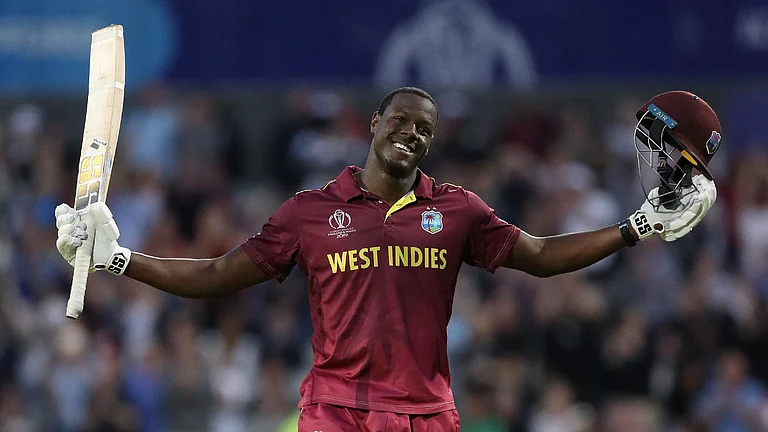My middle-class family has watched too many clips of the spectacular weddings of celebrities that even have the power to change social media algorithms. My aunts and uncles, nephews and nieces have now started to hire choreographers to train them to dance on stage in locations other than home so they can have a destination wedding tag. That’s the trend.
In his Mann Ki Baat episode last year, Prime Minister Narendra Modi asked Indians to wed in India. The big fat Indian wedding is now a big soft power export. After all, Beyoncé and Rihanna have been paid enormous amounts of money to perform at the Ambani weddings. That sets us up as people who can get a guest list only comparable to a Davos summit. Never mind the poverty that’s often pushed behind giant billboards that advertise schemes and achievements of our country and big weddings that are televised and projected everywhere on social media.
We are voyeurs. We want to know who wore what and what it cost. It is all about optics. And optics is what matters in this day and age of social media. Nobody wants to know that a Dalit man was beaten up when he tried to ride a horse at this wedding. That’s not what changes the algorithms across the world.
It was way before these times that writer and artist Susan Sontag wrote “Today everything exists to end in a photograph” in her 1977 book On Photography. At a recent family wedding, there was a lot of that. Everything was inspired by filmi weddings. The mandap overlooked the mountains. The bride and the groom spent most of their time posing for photos which were then processed by an event company and posted with a personalised hashtag. We were in Igatpuri and part of the resort has a Dubai kind of feel. In other spots, it looked like you were in the mountains. There was an emcee (master of ceremonies). There was a dress code for every function.
Most Indian weddings are no longer what they used to be but have become a showcase of social conservatism with the glamourised return to tradition in a way in which ambition and aspiration are cast in a new mould where it is then mostly about class and conspicuous consumption.
I remember when my cousin was getting married in the 1990s, the film Hum Aapke Hain Koun…! had become all the rage. The big fat Indian wedding was glamourised in a way that even our small little neighbourhood in Patna had girls who were inspired by the outfits Madhuri Dixit wore in the film. Designed by Anna Singh who was one of the first costume designers to work in the Indian film industry, the purple sari that Dixit wore cost around Rs 15 lakhs, according to reports. Her green and white lehenga set was duly copied by the girls and they tried to replicate the ceremony of stealing the groom’s shoes. I remember it led to massive confusion where the clueless groom just handed over the shoes himself. Then, we had mehendi and sangeet and, over the years, we started to do everything filmi like everyone else.
Reports say that in about a month, from November 23 to December 15 in 2023, about 3.5 million couples had weddings and the spending was about Rs 4.25 trillion (about $57 billion), as per the Confederation of All India Traders (CAIT). The thing that we are losing in all this is the identity, the uniqueness, that we had in terms of customs and rituals that made weddings also a site of memory of who we are. Now, it is a hybrid kind of wedding that fuses so many things that it only becomes an exercise in ostentation and soft power.
MORE FROM THIS ISSUE
A boastful thing, too. Rihanna danced. At a pre-wedding function of the ninth richest man in world—Mukesh Ambani. World leaders attended. TV reports talked about elephant food there. Everything bizarre became normalised, humanised and now we wonder, what will the wedding be like. That’s going to occupy the national imagination for a while. All this money has done its bit. Caste, class and everything else that keeps us away from each other have been celebrated and how.
(This appeared in the print as 'Wed In India')































